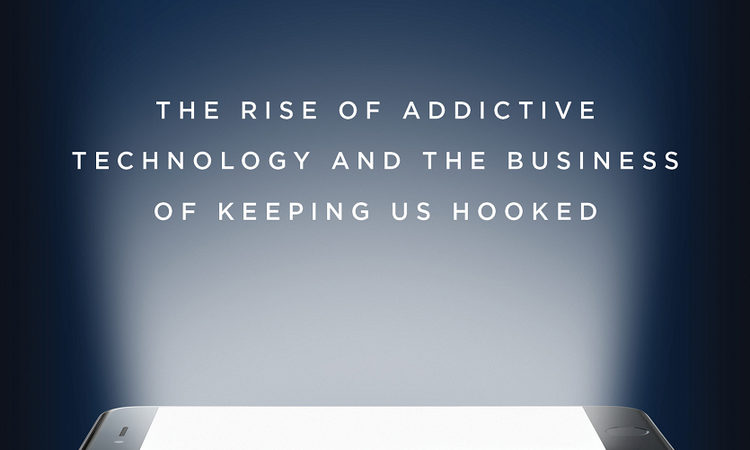Resisting the irresistible: fighting back against the power of addictive technology
This is a guest post by Waynflete parent (’20, ’22, and ’25) Jonathan R. Werner. Jonathan is a library and instructional technology specialist at Cape Elizabeth Middle School.
Let me be clear. I am no technophobe. In fact, I spend my days surrounded by technology working with 5th through 8th graders at Cape Elizabeth Middle School where every student has their own school-issued device. I spend my evenings and weekends with Nicholas, Julia, and Elliott, each of whom has a device, too. And this tech can—and frequently does—transform their learning.
But that transformative learning isn’t all tech is capable of. It has a much darker side. And there is actually an army of people, an entire industry, working very hard to keep us focused on our devices…and not on our real lives. Unfortunately, I found out the hard way just how difficult it is to resist this industry’s efforts.
Perhaps my biggest “AHA!” moment about my own struggle with addictive tech occurred when we were traveling as a family last summer in the Atlantic provinces of Canada. I was surrounded by my family and a landscape so beautiful it is hard to capture in words.
But what was I doing? Emailing. Tweeting. Reading news. Taking calls. Basically looking to my iPhone and not my surroundings for feedback and connections.
And my distraction was so complete, so totally absorbed was I, that I didn’t even realize what I was doing. Or, more importantly, what I wasn’t doing: attending to the now, the present, the joy, and the beauty surrounding me.
I vowed I would break this nasty habit—one which is neurochemically similar to nicotine dependence. To begin, I asked Rebecca, my wife, to passcode lock me out of my device so that I could only answer it if it rang and make emergency calls. It took almost a full month until I felt sufficiently secure that I could resist using my device unnecessarily before I asked Rebecca to unlock it for me. I immediately deleted almost everything on it, effectively making my smartphone dumb again. No email. No social media. No games. No internet. Just calendar, camera, and calls.
Fast forward to now. I’m a much happier, healthier person. To access the digital world, I now have to make the affirmative non-impulsive decision to sit down at a computer and I do that far less frequently, too. I have also discovered that I no longer crave digital feedback nearly as much as I did before last summer.
For the record, I’m 45 years old with fully developed frontal lobes and executive functioning skills. Imagine the havoc that tech wreaks on a not-yet-fully-developed adolescent mind. It makes my uphill struggle to resist technology’s siren song seem more like an up-mountain battle.
This eye-opening experience led me to read a book Rebecca discovered — Irresistible: The Rise of Addictive Technology and the Business of Keeping Us Hooked by Adam Alter. It was the “and the Business” part of the title that immediately captured my interest. Realizing that I was being manipulated for someone else’s financial gain, much like how teenage consumers are manipulated by tobacco companies, was infuriating. But also very empowering.
I am continuing to learn more and more about the emerging efforts to fight this industry bent on demanding our attention, something former Google “Design Ethicist” Tristan Harris calls the “Attention Economy.” As I do, I am excited to continue to share these discoveries with the Waynflete community.
Upper School students: I will look forward to talking further about my experience and the Power of Irresistible Technology (plus what we can do about it!) during Assembly on Tuesday, April 10 and Thursday, April 12.
Faculty, parents, and families: Join me Monday, April 23 at 6:00 p.m. in the Arts Center to continue discussing the growing #TruthAboutTech and #TimeWellSpent movements organized to fight the rising tide of addictive tech.
Learn more about my work by checking out @maineschooltech on Twitter. (And, yes, I do see the irony.)



